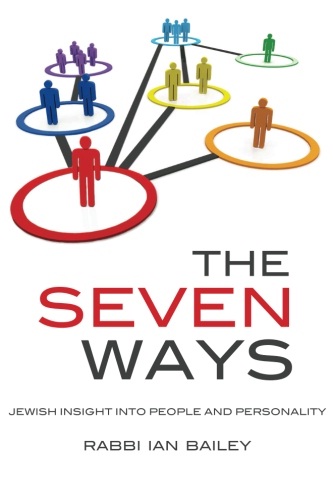Sensitivity vs. Sensitivity
PDF Bo enduring vulnerabilitiesRabbi Joseph B. Soloveichik explains[1] that one of the reasons G-d brought Israel to live in Egypt was to make it a nation that would treat other people in a compassionate way. By the nation suffering and being victimized, it would become ‘rachmanim’, more compassion-filled and empathetic to others.
Israel has always palpably shown that it has the trait of compassion – through its actions, advocacies, and character – but it is important to remember that character traits and their causes can have flip-sides. The suffering in Egypt and millennia of affliction  causes us to be susceptible to being exhausted, vigilant, and defensive. It is important to catch ourselves, when we have the urge to be defensive or desire to respond to someone in a compassionless way.[2]
causes us to be susceptible to being exhausted, vigilant, and defensive. It is important to catch ourselves, when we have the urge to be defensive or desire to respond to someone in a compassionless way.[2]
UCLA psychologist Tom Bradbury coined the term enduring vulnerabilities to refer to the perpetual impact that certain traumatic events or stressors have on our emotions and minds. While I think that there are differing opinions as to the intensity of this vulnerability, both in Jewish and secular sources, it appears quite true that each one of us has our own Achilles’ heel – our Kryptonite, so to speak. Just as Kryptonite was a vulnerability that came from Superman’s home planet, so are many[3] of our lasting vulnerabilities from our youth or our nation’s nescience.
vulnerability, both in Jewish and secular sources, it appears quite true that each one of us has our own Achilles’ heel – our Kryptonite, so to speak. Just as Kryptonite was a vulnerability that came from Superman’s home planet, so are many[3] of our lasting vulnerabilities from our youth or our nation’s nescience.
[Order The Seven Ways, a guide to understanding your personal strengths and dealing with all types of people]
Certain people we meet and certain situations we are in are very hard for us to deal with, and will likely always hard to deal with. Defensiveness, as John Gottman has demonstrated, is poison to marriage and all relationships. We must use our national sensitivity to be sensitive to others, not overly-sensitive to them.
–IB
The Seven Ways ebook Kindle Edition now only $2.99!
[1] Thank you so Rabbi Avrohom Gordimer, for sharing this with me.
[2] In my work as a salesman, I began noticing that most customers began their questions by prefacing, “You probably can’t help me with this but…” or “You probably don’t have this, but…”, and I wondered why they did this? My rabbi and I both agreed on the same answer: fear of rejection. These people were so used to grouchy and otherwise negaitve responses that they attempted to preempt any such reaction in the answerer. From a psychological perspective, this is quite intriguing. By saying this statement, their unconscious mind actually caused them to elicit a more negative response (i.e., sounding like “you can help me…”), thereby fulfilling their own fear. This is common place among intrapsychic fears.
[3] But not necessarily all. For example, soldiers returning from war.
[4] From a Seven Ways perspective, your lasting vulnerability is virtually always a personality, behavior, skill set, or method of interpersonal relating that is foreign to your personality. Your destiny, the mannerisms you have, and often the choices you draw certain personalities or traumas toward you impact you. An example I commonly use are the middot of yesod and gevurah. Part of yesod is to be an individualist and to have big plans, while part of gevurah is to desire to conform and be detail-oriented and cautious. Many yesods tell me that, similar to Yosef the yesod archetype, they experienced attacks from gevurah types or people using that middah. These attacks greatly impacted their lives and psyche. It is very common for people to disapprove of a gevurah’s seeming preoccupation with their own wellbeing. Gevurahs are reprimanded for not ‘acting nice’ and (seemingly) not acting in a giving way. Really, they just naturally think about their own wellbeing – nothing intrinsically wrong with that – and need practice in benevolence, not chastisement. Furthermore, we tend to judge people based on the brief glimpses we get of their demeanour. Many gevurahs are giving and run to assist others, when they are in need.
